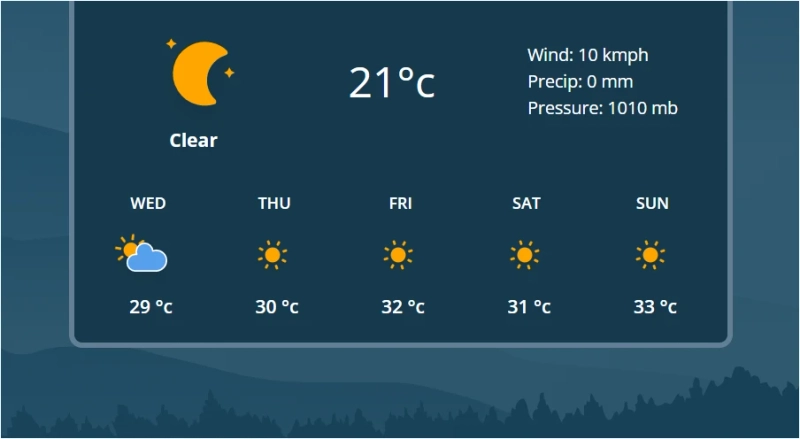Businesses and developers are increasingly leveraging global weather API to access real-time weather data, enabling them to make informed decisions, develop innovative applications, and enhance user experiences. In this blog post, we will delve into the myriad benefits of utilizing global weather API, ranging from accessing real-time weather data to building advanced weather applications.
Understanding Global Weather API
Global weather API serves as a gateway for businesses and developers to access comprehensive weather data from around the world. These APIs provide a wide range of weather information, including temperature, humidity, wind speed, precipitation, and forecasts, sourced from a network of weather stations, satellites, and other sources. By integrating with global weather API, businesses and developers can access up-to-date weather data for any location worldwide, enabling them to develop a variety of weather-based applications and services.
Benefits for Businesses
1. Informed Decision-Making
Global weather API empowers businesses to make data-driven decisions by providing access to real-time weather data. For industries such as agriculture, transportation, logistics, and retail, weather conditions can have a significant impact on operations, sales, and supply chains. By integrating weather data into their decision-making processes, businesses can better anticipate and mitigate weather-related risks, optimize resource allocation, and improve overall efficiency.
2. Enhanced Customer Experience
Weather influences consumer behavior and preferences, particularly in industries such as travel, hospitality, and outdoor recreation. By leveraging global weather API, businesses can enhance the customer experience by providing personalized recommendations, real-time weather updates, and location-based services. For example, travel companies can offer tailored travel itineraries based on weather forecasts, while outdoor event organizers can keep attendees informed about weather conditions.
3. Improved Resource Management
Global weather API enables businesses to optimize resource management by accurately forecasting weather patterns and trends. For energy companies, utilities, and renewable energy providers, weather data plays a crucial role in predicting energy demand, optimizing production schedules, and managing infrastructure. By integrating weather forecasts into their operations, businesses can reduce costs, minimize downtime, and improve overall resource efficiency.
4. Risk Mitigation
Weather-related disasters, such as hurricanes, floods, and wildfires, can have devastating effects on businesses and communities. Global weather API provides businesses with the tools to monitor and assess weather risks in real-time, allowing them to implement proactive measures to mitigate potential damage and ensure business continuity. By staying informed about impending weather events, businesses can minimize disruptions, protect assets, and safeguard the well-being of employees and customers.
Benefits for Developers
1. Access to Real-Time Weather Data
Developers can leverage global weather API to access a wealth of real-time weather data, including current conditions, forecasts, and historical weather patterns. This data serves as the foundation for building weather-related applications and services across various industries, including agriculture, aviation, transportation, and tourism. With global weather API, developers can access accurate and reliable weather information to power their applications and provide value to end users.
2. Simplified Integration
Global weather API offers developers a streamlined integration process, with comprehensive documentation, SDKs, and developer tools available for popular programming languages and platforms. Whether developing a web application, mobile app, or IoT device, developers can quickly integrate weather data into their projects using RESTful API, JSON responses, and other standard protocols. This simplifies the development process and allows developers to focus on building innovative features and functionalities.
3. Scalability and Reliability
Global weather APIs are designed to scale with the needs of developers and businesses, offering reliable performance and uptime. Whether querying weather data for a single location or thousands of locations worldwide, developers can rely on global weather API to deliver accurate and timely results. Additionally, many weather API providers offer service level agreements (SLAs) and dedicated support channels to ensure the reliability and availability of their services.
4. Cost-Effective Solutions
For developers seeking cost-effective solutions for accessing weather data, global weather API offers flexible pricing plans, including free tiers with limited usage and paid plans with additional features and capabilities. This allows developers to choose the plan that best fits their budget and requirements, whether they are building a hobby project, a prototype, or a production-grade application. With free weather API available without requiring an API key, developers can quickly get started with accessing weather data without any upfront costs.
Conclusion
Global weather API offers a wealth of benefits for businesses and developers alike, enabling them to access real-time weather data, make informed decisions, and develop innovative applications and services. Whether monitoring weather risks, optimizing resource management, or enhancing the customer experience, weather API plays a crucial role in various industries and sectors. As businesses continue to embrace digital transformation and developers push the boundaries of innovation, the demand for global weather API is poised to grow, driving advancements in weather technology and empowering businesses and developers to thrive in an ever-changing environment.
FAQs
What is a global weather API?
A global weather API is a programming interface that provides access to real-time and forecasted weather data for locations around the world. Developers can integrate these APIs into their applications to retrieve information such as temperature, humidity, wind speed, and precipitation.
How can businesses benefit from using global weather API?
Businesses can benefit from using global weather API in several ways, including making informed decisions based on real-time weather data, enhancing customer experiences with personalized weather updates, optimizing resource management by forecasting weather patterns, and mitigating risks associated with weather-related disasters.
What programming languages are supported by global weather API?
Global weather API typically supports a wide range of programming languages, including JavaScript, Python, Java, C#, and more. Additionally, many API providers offer SDKs (Software Development Kits) and libraries to simplify integration with popular programming languages and platforms.



